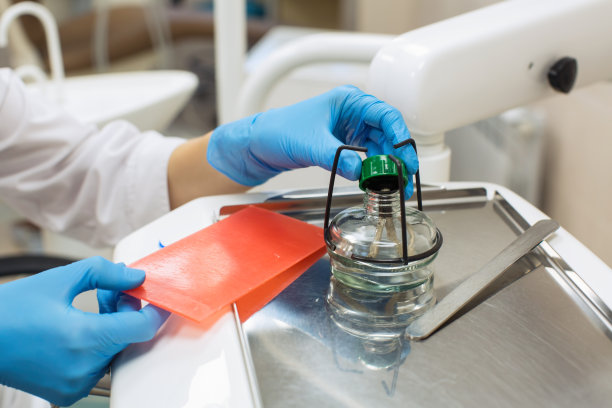Summary: Dental implantation is a transformative procedure for those seeking to restore their smile and improve oral functionality. However, the success of this surgical intervention relies heavily on thorough preparation and adherence to essential guidelines. This article outlines critical steps to follow before undergoing dental implantation, focusing on understanding the procedure, selecting the right dentist, evaluating overall health, and aftercare. By following these essential guidelines, patients can optimize the outcomes of their dental implants while ensuring their safety throughout the process.
1. Understanding the Dental Implant Procedure

The first step before undergoing dental implantation is comprehending the details of the procedure itself. Dental implants are artificial tooth roots, typically made of titanium, which are surgically placed in the jawbone. This innovative solution is designed to provide a strong foundation for fixed or removable replacement teeth.
Patients should grasp the various stages involved in the dental implant process, which usually includes the initial consultation, the surgical placement, and the healing period. The initial consultation will often involve imaging studies, such as X-rays or CT scans, which help the dentist assess bone density and determine the appropriate implant position.
Understanding the full scope of the procedure also involves being aware of the possible complications. While dental implants boast a high success rate, factors such as infection, nerve injury, or implant failure can occur. Thus, researching and discussing these possible outcomes with the dentist is crucial.
2. Choosing the Right Dentist or Oral Surgeon
Selecting an experienced and reputable dentist or oral surgeon is paramount in the success of dental implantation. It is beneficial to seek recommendations from friends, family, or dental professionals to find a qualified specialist known for their expertise in implantology.
Once potential candidates are identified, examining their qualifications, certifications, and experience is essential. Many oral surgeons undergo additional training beyond dental school, focusing specifically on implant surgery, so confirming their credentials can provide additional peace of mind.
Additionally, scheduling consultations with multiple dentists can be advantageous. During these visits, patients should ask about the dentists approach, success rates, and any advanced technologies they use. This information can aid in making an informed decision about whom to trust with the procedure.
3. Evaluating Overall Health and Lifestyle Factors
Before undergoing dental implantation, it is vital to evaluate one’s overall health and lifestyle. Certain medical conditions, such as uncontrolled diabetes or osteoporosis, can significantly impact the healing process and the success of dental implants. Thus, disclosing all health conditions to the dentist is crucial.
Moreover, lifestyle habits, such as smoking and excessive alcohol consumption, can hinder the healing process and result in complications post-surgery. Smoking, in particular, is known to increase the risk of implant failure. Patients should consider making lifestyle adjustments to improve their overall health before undergoing the procedure.
Additionally, maintaining good oral hygiene practices before surgery is essential. A healthy mouth reduces the risk of infection and promotes a smoother healing process. Regular dental cleanings and following the dentist’s advice about pre-operative care can help ensure better outcomes.
4. Importance of Aftercare Post-Implant Surgery
Aftercare following dental implantation plays a crucial role in ensuring optimal results. Once the implants are placed, the body needs time to heal, and following the dentists aftercare instructions is essential for recovery. This may include taking prescribed medications, avoiding certain foods, and refraining from strenuous activities.
Additionally, attending follow-up appointments is vital for monitoring the healing progress and ensuring that the implants are integrating well with the bone. These appointments allow dentists to address any concerns and assess the overall health of the implants.
Furthermore, maintaining a diligent oral hygiene routine is essential after the procedure. Patients should be careful while brushing and flossing around the implant sites initially but should strive to keep the area clean and free from plaque. This precaution helps prevent infection and promote the long-term success of the dental implants.
Summary:
In conclusion, preparing for dental implantation is a multifaceted process that includes understanding the procedure, selecting the right dentist, evaluating health, and adhering to aftercare. Each of these steps contributes significantly to the successful placement of dental implants, ensuring not only the restoration of one’s smile but also the overall health of the oral cavity.
This article is compiled by Vickong Dental and the content is for reference only.
Vickong Dental
Vickong Dental is a large medical group established in Hong Kong in 2008 by professors from well-known medical universities in Guangdong and Hong Kong, as well as medical doctors from key national '985' universities (including Master's supervisors and senior professors). The chain of branches brings together expert dentists with PhDs and Master's degrees from Hong Kong and Mainland China, committed to providing high-quality dental treatment.
"Vickong Dental Practices the University Motto of 'Healing and Serving Society,' with a Stable Operation for Sixteen Years. It Has Been honored with Hong Kong Enterprise Leaders's Choice,' and is a Global Trusted Implant Center for the Nobel Implant System. Recommended by Hong Kong Metro Broadcast and Guangdong Television, it Serves Customers from Over Thirty Countries and Regions, Gaining the Trust and Favor of Citizens from the Guangdong-Hong Kong-Macau Greater Bay Area and Surrounding Cities.

Thousands of customers' unanimous praise
The most recognized and highly recommended dental service by customers in the Guangdong-Hong Kong-Macau Greater Bay Area
We Ensure You Receive Detailed Care and Attention Here
Hong Kong standards, Shenzhen prices, Your Trusted English-speaking dentists

Vickong Dental Medical-Grade Instrument Disinfection Process
Vickong Dental Medical-Grade Instrument Disinfection Process

Vickong Dental Chain: A Warm and Comfortable Environment for Treatment






Appointment Hours

Q&A
Why choose Vickong Dental?
Vickong Dental practices the university motto 「Medicine to Benefit Society」, with each branch bringing together highly qualified dentists with doctoral and master’s degrees from Hong Kong and the Mainland, and has maintained seventeen years of steady operation。Recipient of 「2024 Hong Kong Enterprise Leaders Brand」, 「2025 Hong Kong Enterprise Leaders Brand」, a Nobel Biocare Global Trusted Implant Center, and a brand recommended by Metro Radio Hong Kong and Guangdong TV。
To date, we have served customers from more than thirty countries and regions,earning exceptionally high word-of-mouth recognition and trusted recommendations from residents across the Guangdong-Hong Kong-Macao Greater Bay Area and surrounding cities
We have eight major branches in Zhuhai、Shenzhen,and a consultation and service assurance center in Hong Kong,so you can book a free consultation at any time for any questions,which is very reassuring.
If I do not accept the quotation after the CT scan, will I be charged??
No! As long as the actual treatment has not started, you will not be charged any fees.
Will there be any additional charges during the treatment process?
No, there won’t be any additional charges. Before treatment begins, we will clearly explain the treatment plan and its corresponding fees. Only after the patient agrees and signs the consent form will we proceed with the dental service.
Can I pay in Hong Kong dollars?
Yes. Vickong Dental accepts payment in Hong Kong dollars. The amount will be converted based on the exchange rate of the day, and the applicable rate will be clearly communicated to you in advance.
Can I reschedule my appointment at any time?
Yes. Please contact us via **WeChat** or **WhatsApp** as early as possible, providing your original appointment time and details, along with your preferred new date and time slot for rescheduling.













